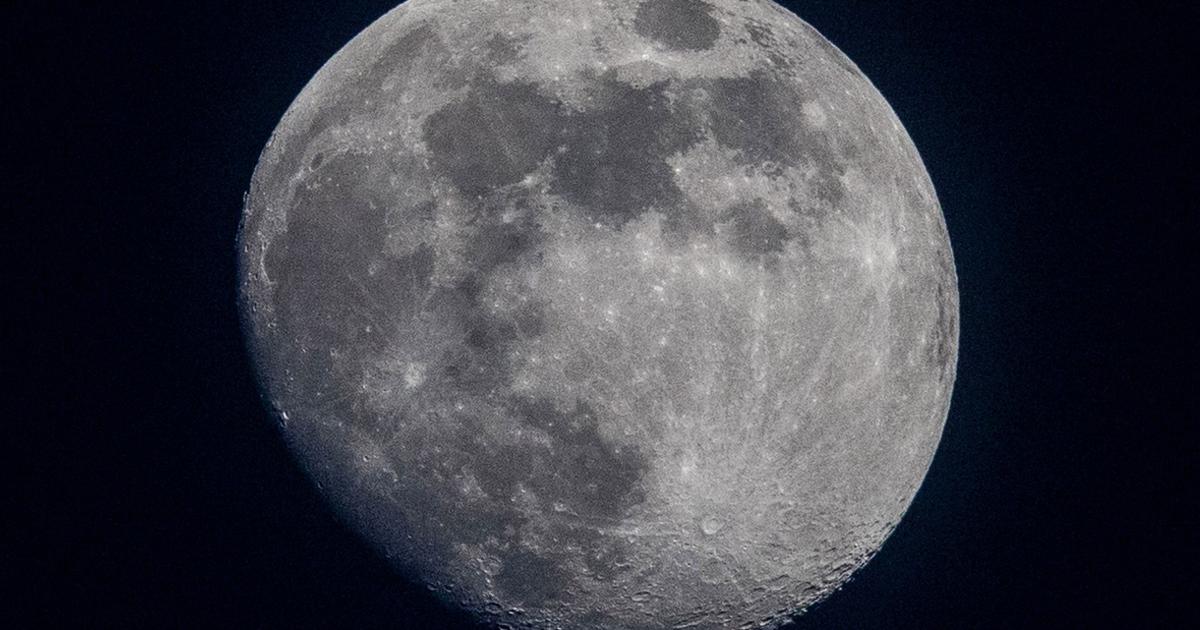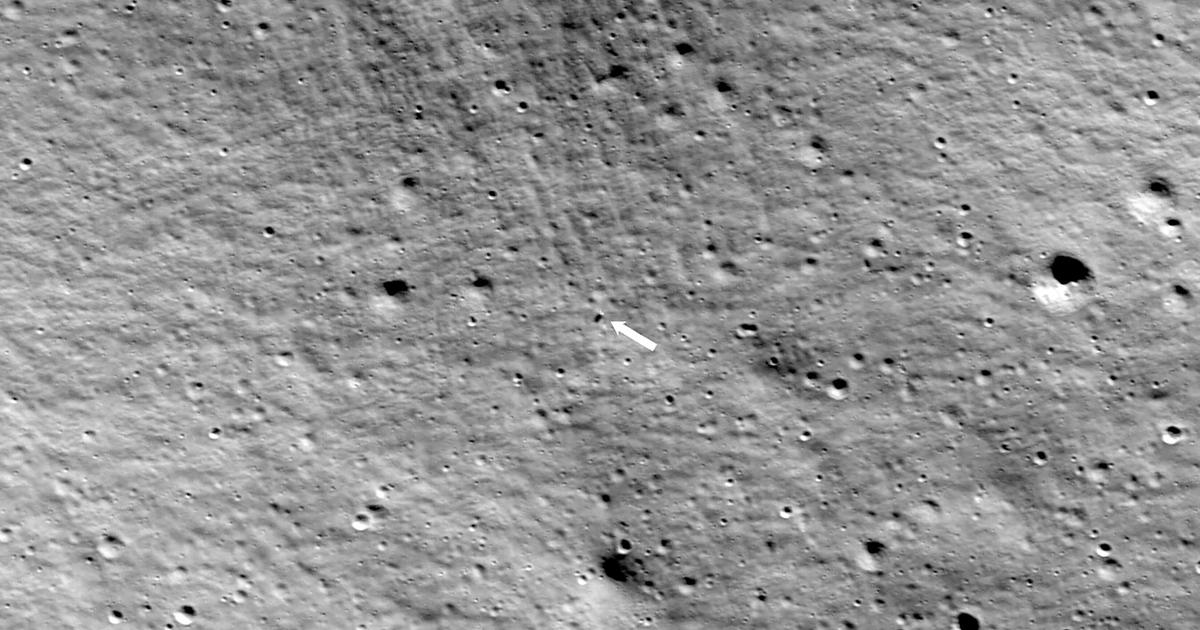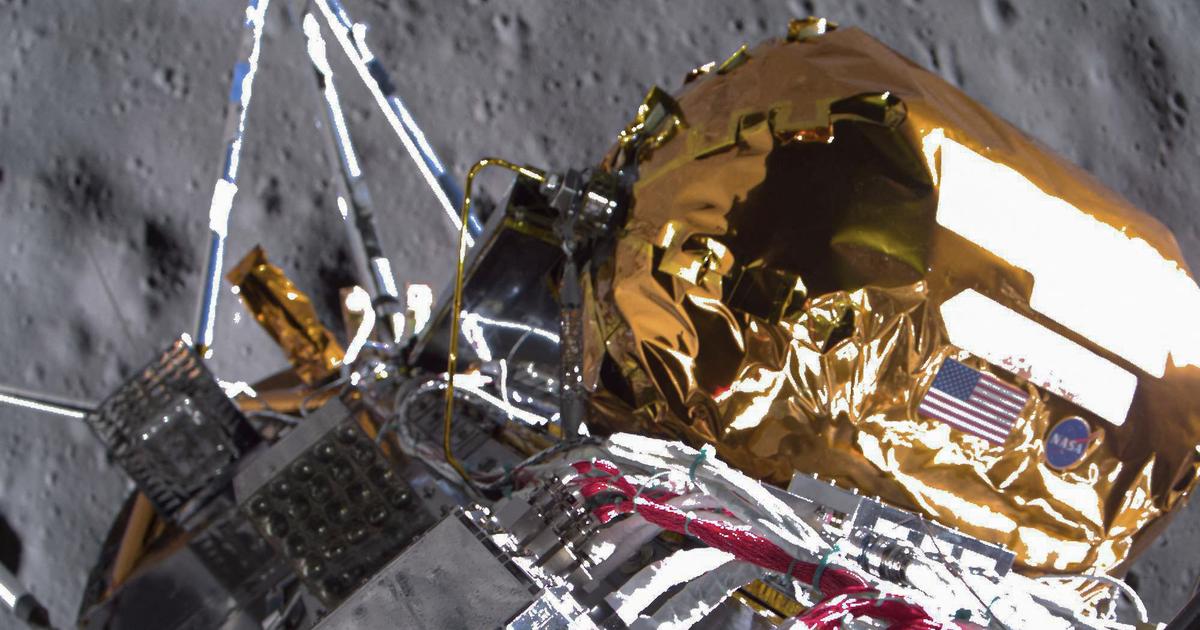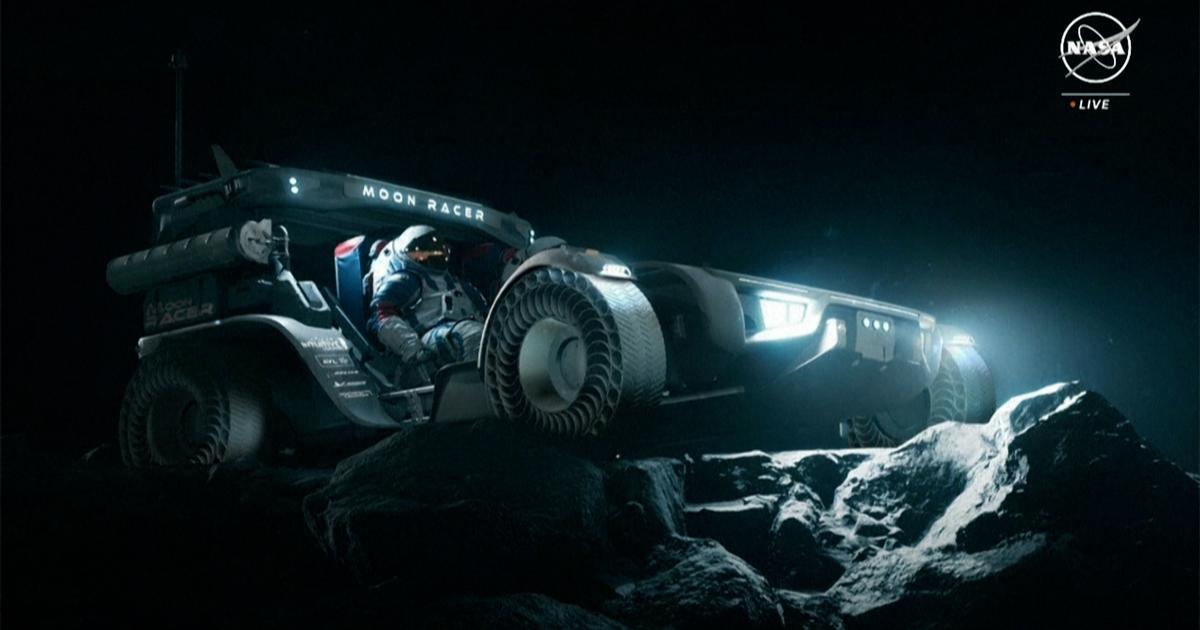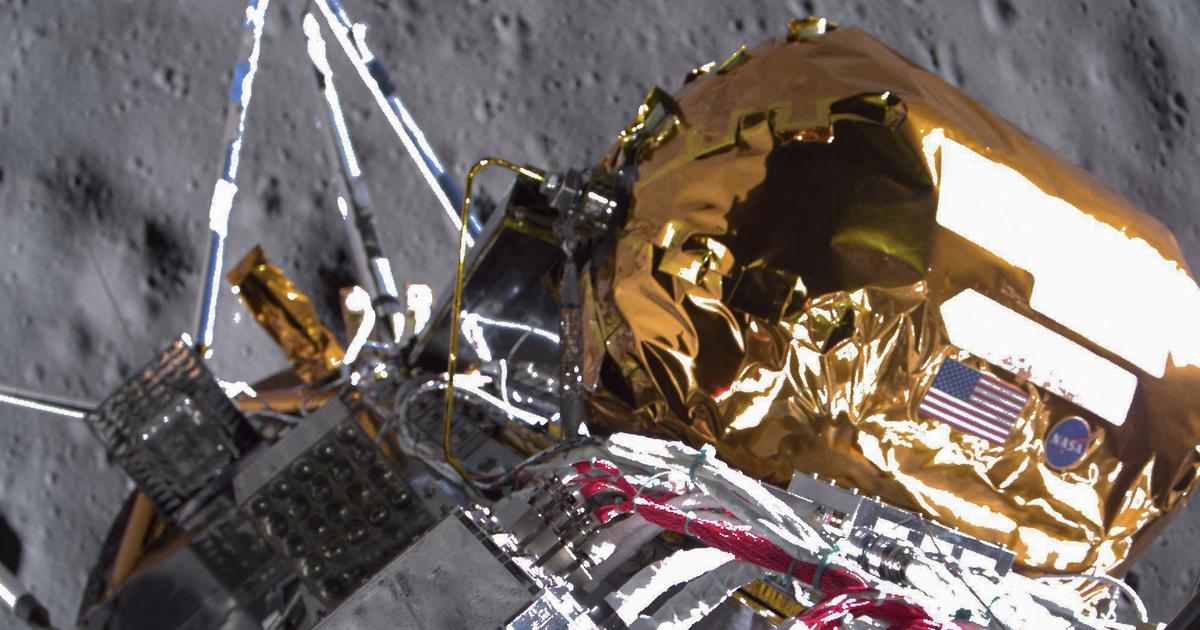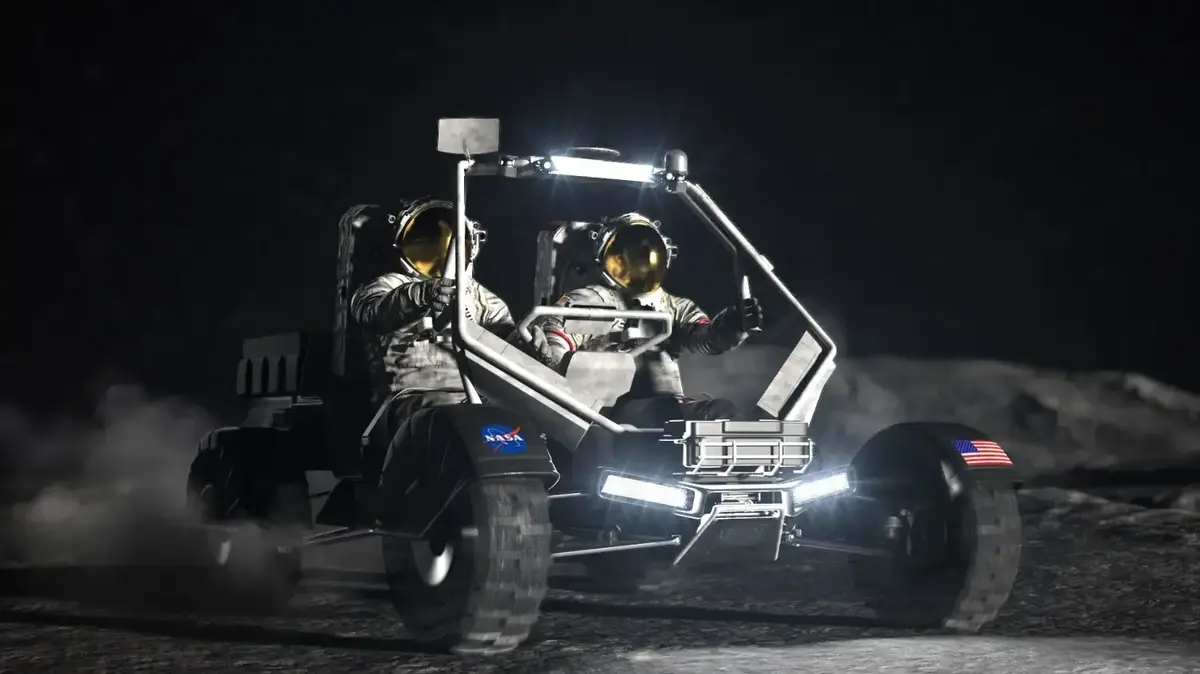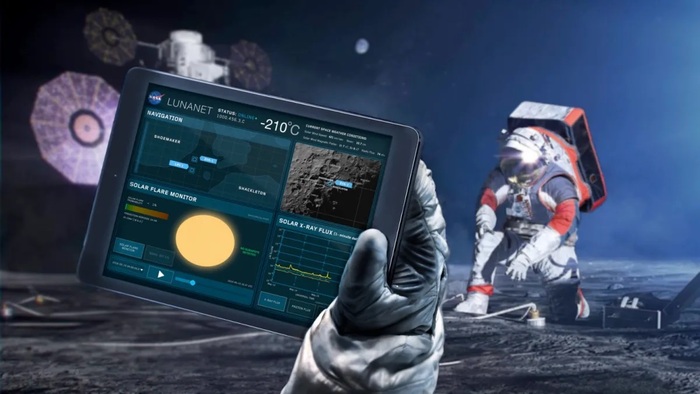Eduardo García Llama was emptying his bladder one day in a toilet at his workplace when he began to feel noise behind him.
Finishing the task and turning around, still zipping up, he ran into Neil Armstrong, the first Earthman to walk on the Moon, urinating next to him.
Nearby was also Buzz Aldrin, the second person to walk through another world.
Stupefied, García Llama continued to look at the other users of the bathroom, who had just entered joking with each other and laughing out loud.
Another of them was Fred Haise, miraculous survivor of the Apollo 13 accident. And there was also Alan Bean, fourth man on the Moon;
John Young, the ninth;
and Gene Cernan, the twelfth and last.
"I was alone in the bathroom with all those who had been on the Moon!", García Llama still amazed recalls,
a 50-year-old man from Madrid who has spent more than two decades at NASA's Johnson Space Center in Houston (United States).
Now it's his turn to participate in a mission to the Moon.
García Llama, a physicist and aerospace engineer, directs the guidance and control system of the
Orion
spacecraft , which, if all goes well, will leave this Saturday for the Earth's satellite with three mannequins on board.
It will be the first mission of the Artemis Program, which in 2025 will take "the first woman and the first non-white person" to walk on the Moon, according to NASA plans.
García Llama, author of the book
Apolo 11. The exciting story of how man stepped on the Moon for the first time
(Editorial Crítica), is an encyclopedia of lunar missions with legs.
Within two hours of
Artemis I
's launch , he will take control of the ship.
On the chest of his official uniform he has added, embroidered, the Latin words
Non sufficit orbis
, the motto of Felipe II, king of the enormous Spanish empire in the second half of the 16th century.
It means: “The world is not enough”.
Ask.
Neil Armstrong was asked a philosophical question in a television interview days before his trip to the Moon in 1969: "What do you think this mission tells us about being human?"
Say: What does the Artemis Program tell us?
Response.
What it tells us is that we are exploring beings.
As Neil Armstrong said, we follow our instinct to explore, just like salmon swim against the current.
Exploring has an adaptive value.
If an animal knows the escape routes in its environment, it has a better chance of surviving and not being hunted.
Five centuries ago, Spain and Portugal explored the seas.
The motivation in the sixteenth century was commercial.
In the space race between the United States and the Soviet Union, the motive was political: to make a show of force.
But those motivations are anecdotal.
Deep down is our instinct to explore.
P.
Is the Moon going to be economically exploited yes or yes?
For example, extracting its minerals.
R.
Everything will always be used, it is impossible to stop it.
Homo sapiens
arose
in Africa about 200,000 years ago and, about 70,000 years ago, began to populate the rest of the world.
One could ask a
Homo sapiens
70,000 years ago: “Hey, do you think that everything outside of Africa will end up being used?”
We have to break the space-time barriers that we are used to.
In 200 years, maybe the Moon is a place where there are people from many nations, where there are ferries coming and going, and where its resources are fully exploited.
So the answer to the question is yes, but I can't say when.
It is the natural destiny of things.
Space is the next ecological niche of the human being and, as such, it is going to be exploited, just as 70,000 years ago it happened with the rest of the world outside of Africa.
05:09
From Apollo to Artemis: which people have walked on the Moon?
Image of the Earth looming over the lunar horizon, taken by the astronauts of the 'Apollo 8' mission. Video: EPV
Q.
The astronauts of the
Apollo 8
mission took the first photo of the Earth peeking over the horizon of the Moon, an image that changed the way humanity saw itself.
Do you expect any of the
Artemis
images to cause something like this in 2025?
R.
The fact that a woman is the next human being to set foot on the Moon sends a very important message about equality between men and women.
And also that someone of color is the second person to step on lunar soil.
It gives a message to the world of equality, of cohesion.
In 200 years, the Moon may be a place where there are people from many nations.
Q.
You say in your book that on the
Apollo 11
mission — the first to land on the moon — it was calculated that there was a 10% chance that the three astronauts would not return alive.
Do you in the Artemis Program handle success rates for astronauts?
R.
I have not heard anything about probabilities.
Q.
Do you think that the first woman to walk on the Moon will have a 100% chance of coming back alive?
A.
100% never exists.
Is there a 100% chance that you'll go get coffee at the office and not have a heart attack and die?
No, there is a tiny chance of it happening.
The same thing happens here.
P.
The US president, Richard Nixon, even had a speech prepared in case of lunar disaster in 1969. Do you think that this time a similar speech will be prepared in case the first woman on the Moon dies there?
R.
Maybe that speech will be made.
I think the fundamental message is that there is not a 100% chance that someone will not die on a lunar mission, but just as there is no 100% chance in anything in life.
Speech prepared for President Richard Nixon in the event of the death of the astronauts of the 'Apollo 11' mission. US National Archives
Q.
Astronaut Gus Grissom stated in 1966 that "the conquest of space is worth risking your life."
And sure enough, a few months later he burned to death during a rehearsal for the
Apollo 1
mission .
One of Grissom's surrogates, Walter Cunningham, often recounts that the astronauts in the Apollo Program felt like gladiators going to die in the Roman circus.
Some died and others came out into the arena.
Do you think that the astronauts who go to the Moon in the
Artemis
missions will also be gladiators who risk their lives?
R.
They are not gladiators.
I believe that the
Apollo
astronauts , in general, did not look like gladiators.
They saw themselves as very capable people to carry out a series of tasks in which there is a greater risk of losing their lives than that of a normal person.
There are many professions that take a higher risk of losing their lives, not just astronauts going to the Moon.
They are people who take risks and prepare to achieve something that is greater than themselves.
Going back to the Moon is a spectacular achievement, not only for you, but for the human species.
There are many professions that take a higher risk of losing their lives, not just astronauts who go to the Moon
Q.
You state in your book that the mission commanded by Neil Armstrong was "a live mythological-heroic story."
He contrasts the image of those pioneers of the Apollo Program and the one we are seeing now in the
Artemis I
mission , with the dolls of Snoopy the dog and Shaun the sheep as crew members.
Is there less epic in the Artemis Program?
R.
I think that the doll thing is totally anecdotal.
As for epics and mythology, it is very difficult to surprise human beings, they get used to everything.
You surprise him at first and then he gets used to it.
The other day, on the radio, someone who was in kyiv was saying that people have already got used to the war and lead their normal lives.
It's unbelievable, but it happens.
And he also passed in the Apollo Program.
Apollo 12
was not seen by anyone
!
[Laughs] Nobody followed the post-
Apollo 11
missions , to the point where if you now ask how many people have been to the Moon, a lot of people will tell you Armstrong and that's it.
Well, there have been 12 people.
Nobody knows that there were more missions later.
with
artemis
the same will happen.
At first there will be a great following, but, when it lands on the moon, people will get used to it.
P.
In fact, in the second mission that landed on the moon,
Apollo 12
, the first words of the commander upon stepping on the Moon were a joke.
"Wow!
It would be a small step for Neil, but for me it's been a big one,” he said with a laugh, because he was shorter than Armstrong.
A.
Yes, that was Pete Conrad.
There were journalists who believed that astronauts were marked by what they had to say.
Conrad explained that he didn't and bet a reporter that he would say that.
And he said it.
P.
Buzz Aldrin celebrated the Eucharist as soon as he reached the lunar surface and began to pray there.
Was there too much religion in the arrival of the human being on the Moon?
R.
No, the other way around.
In fact, there wasn't.
Aldrin did so without anyone knowing that he was taking communion.
He did it in the cockpit and sent a message [relayed on Earth] asking everyone to give thanks in whatever way he saw fit.
He made no reference to his religion or that he was taking communion.
There was no religion at all.
We have to get out of the provincial space-time schemes with which we think
P.
The atheist activist Madalyn Murray O'Hair denounced that the biblical Genesis was read from the orbit of the Moon in the
Apollo 8
mission , in 1968.
R.
Yes, but it cannot be said that there was religion in the Apollo Program.
The only religious reference was that of
Apollo 8.
And you have to imagine that moment: you have three human beings who leave, for the first time in the history of humanity, the gravitational influence of the Earth, going to another world.
They had their personal religious beliefs and it was heartbreaking to read that.
Madalyn Murray O'Hair reported it because a government agency has to be neutral.
Space agencies do not promote religious or political ideas.
We go to space and period.
Astronaut Neil Armstrong works in the lunar module of 'Apollo 11', after planting the American flag on the Moon.NASA
P.
You also tell in your book that there was a debate about whether to plant the American flag or the United Nations flag on the Moon.
Do you think it was a mistake to plant the US flag instead of one of humanity?
A.
I don't think it was a mistake.
That debate existed at some level within the US, but not much.
In the Apollo Program, the United States put all the work and all the resources.
It would be illogical for them to go to the Moon and put up the Spanish flag, they will have to put up theirs!
[Laughter].
I think it was a gesture of reconciliation with the world that they said that this was done in the name of humanity.
P.
If in the
Apollo 8
mission the Koran had been read, instead of the Bible, and in
Apollo 11
they had planted the Iranian flag on the Moon, instead of the US one, perhaps the sensations generated would have been different .
R.
The flag and everything that is proclaimed does not matter, it is anecdotal.
We have to get out of the provincial space-time schemes with which we think.
The important thing is that you have two human beings living in another world, for the first time in the history of the species.
The fact that they were Americans, Indians or Japanese does not matter.
Your kind has done something incredible.
It is as if you were wondering what tribe those first humans who left Africa 70,000 years ago were from.
Were they from the lake tribe or were they from the lake next door?
Or were they from the part of the savannah a little higher up?
What difference does it make!
You can write to us at
manuel@esmateria.com
or follow
MATERIA
on
,
,
or subscribe to our
newsletter here
.
50% off
Subscribe to continue reading
read without limits
Keep reading
I'm already a subscriber

/cloudfront-eu-central-1.images.arcpublishing.com/prisa/35UXBJ7PQ5FOTMWCJLRVKZBNAA.jpg)
